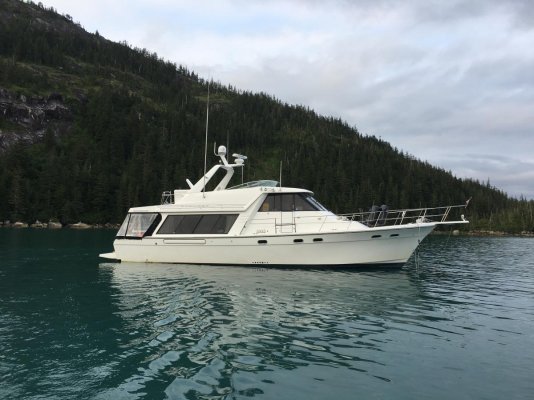Agreed. Plodding along at 6.5 - 7 kts I can only manage somewhere around 1.2 - 1.3 nmpg with twin 454s. At 17 - 18 kts it's more like 0.5 - 0.6 nmpg. A modern pair of diesels would get the same hull to about 3 nmpg at the lower speed, 0.9 - 1 at higher speed. So about a 40% improvement for high speed, but easily 60% at lower speed.
Of course, at low speed the gassers are nice and quiet (especially up on the bridge) even with my boat not having a lot of sound insulation on the engine room. On plane, it's a different story with plenty of intake howl and other general engine noise (exhausts are still fairly quiet though). But it was pretty cool running through some of the fast sections of the Erie Canal up on plane and realizing I could hear the engine intake noise escaping through the hull sides and vents and echoing back off the banks of the canal.
"A modern pair of diesels would get the same hull to about 3 nmpg at the lower speed, 0.9 - 1 at higher speed."
A good guess...not really off that much from what we got with our 38' twin diesel boat.
At 6 knots it would get 4 nmpg and at 15-16 knots it was always above 1.2 but often near 1.4 nmpg.
Contrary to what some might think the 5 cyl 4 stroke diesels were not noisy at all at most any speeds as they exhausted thru mufflers and discharged well out the stern. Generally the boat was 38'2" molded hull with a 13'5" beam weighing in at about #20,000 dry and unloaded.



